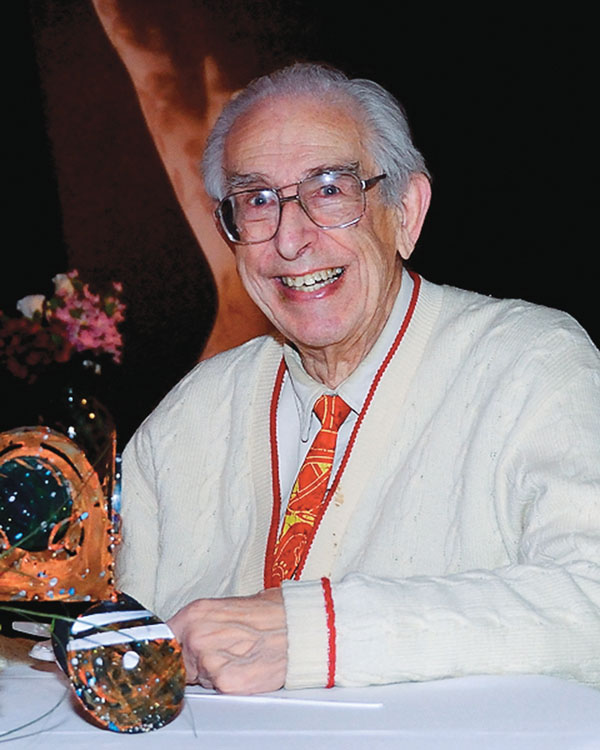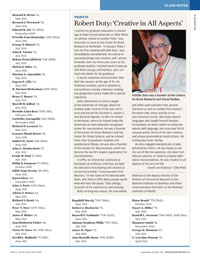In Memoriam
 VISION: Doty was a founder of the Centers for Brain Research and Visual Studies. (Photo: Medical Center Public Relations)
VISION: Doty was a founder of the Centers for Brain Research and Visual Studies. (Photo: Medical Center Public Relations)I started my graduate education in physiology at Wake Forest University in 1965. When my advisor moved to another field, I was fortunate to move to the Center for Brain Research at Rochester. In January 1968, I had my first meeting with Bob Doty. I was immediately overwhelmed. His course in neurophysiology was massive, and I almost drowned. Over my three-plus years as his graduate student, I worked hard to keep up with Bob’s energy and intellect, and I am much the better for his guidance.
A world-renowned neuroscientist, Bob died last January at the age of 91. His immense curiosity, spirit of adventure, extraordinary energy, extensive reading, and gregarious nature made him a special individual.
Bob’s adventures in science began at the University of Chicago, where he studied under several of the stars of science and earned his bachelor’s, master’s, and doctoral degrees. In 1961 he moved to Rochester, where he helped make the University an internationally recognized center for neuroscience. He was a founder of the Center for Brain Research and the Center for Visual Science, and he trained more than 50 graduate students and postdoctoral fellows. He was also a founder of the Society for Neuroscience, which has become the world’s largest organization for neuroscientists.
In 1996, he retired but continued at Rochester as professor emeritus. He kept his laboratory functioning and created an annual lectureship, “Consciousness from Neurons,” in the name of his beloved wife, Betty, who died in 1999. Many people worldwide will miss the yearly “Doty Doings,” accounts of his experiences and musings.
Bob’s writing was unique. He read widely and often used concepts from ancient literature as well as studies from Eastern European labs, those outside of our own American circuit. Bob knew several languages and taught himself Russian. Fortunately, he never noted my miniscule talents with language. His prose was full of unusual words, terms of his own creation, and unique grammatical constructions. His writing was never boring.
He also engaged energetically in talks delivered by others. He was happy to ask the out-of-the-box question, cite data from obscure sources, or cleverly propose alternative interpretations. He was creative in all aspects of his very full life.
—David Lee Robinson ’72M (PhD)
Robinson is the deputy director of the Division of Intramural Research at the National Institute on Deafness and Other Communication Disorders at the National Institutes of Health.

